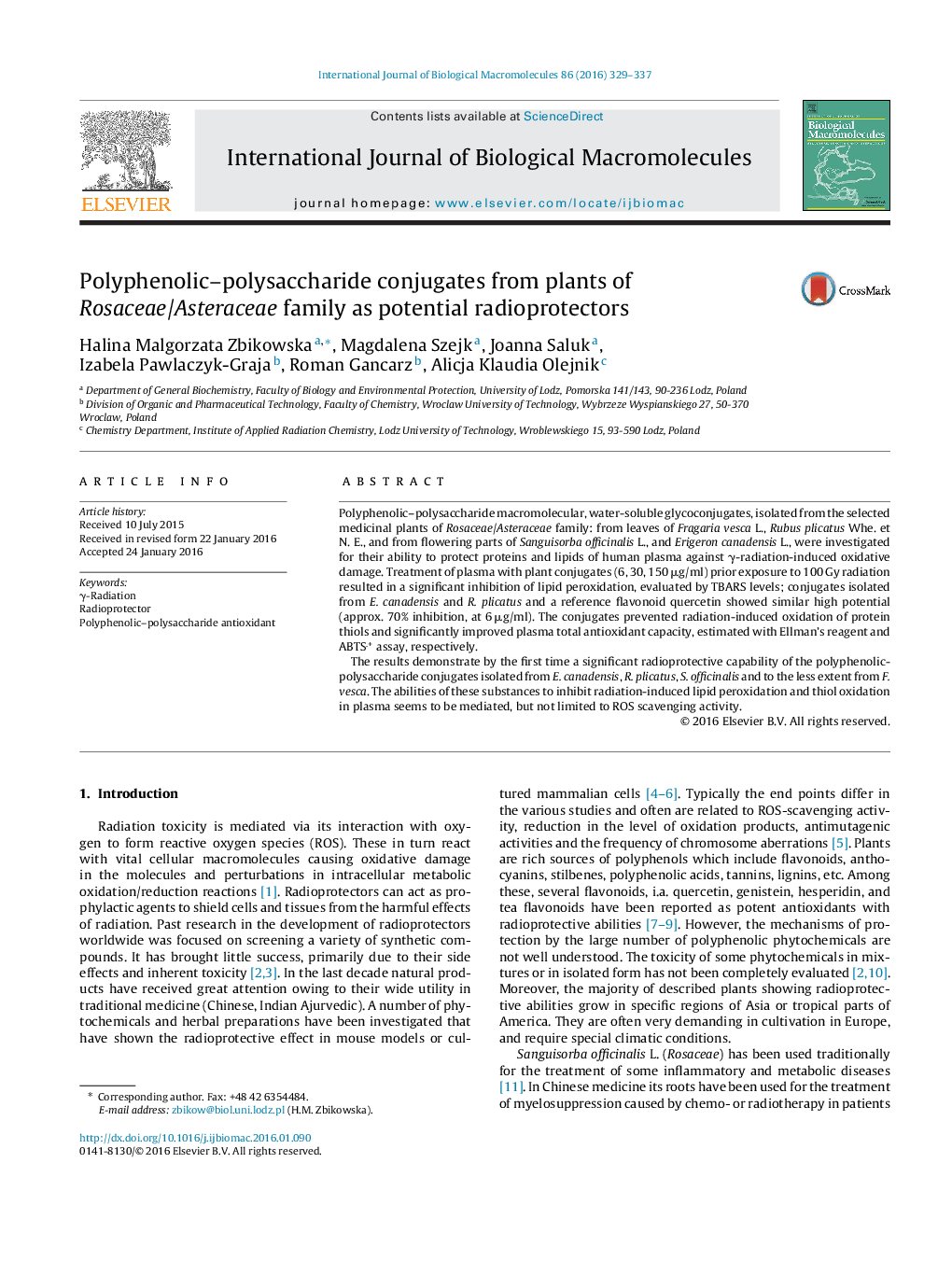| Article ID | Journal | Published Year | Pages | File Type |
|---|---|---|---|---|
| 1985910 | International Journal of Biological Macromolecules | 2016 | 9 Pages |
Polyphenolic–polysaccharide macromolecular, water-soluble glycoconjugates, isolated from the selected medicinal plants of Rosaceae/Asteraceae family: from leaves of Fragaria vesca L., Rubus plicatus Whe. et N. E., and from flowering parts of Sanguisorba officinalis L., and Erigeron canadensis L., were investigated for their ability to protect proteins and lipids of human plasma against γ-radiation-induced oxidative damage. Treatment of plasma with plant conjugates (6, 30, 150 μg/ml) prior exposure to 100 Gy radiation resulted in a significant inhibition of lipid peroxidation, evaluated by TBARS levels; conjugates isolated from E. canadensis and R. plicatus and a reference flavonoid quercetin showed similar high potential (approx. 70% inhibition, at 6 μg/ml). The conjugates prevented radiation-induced oxidation of protein thiols and significantly improved plasma total antioxidant capacity, estimated with Ellman’s reagent and ABTS.+ assay, respectively.The results demonstrate by the first time a significant radioprotective capability of the polyphenolic-polysaccharide conjugates isolated from E. canadensis, R. plicatus, S. officinalis and to the less extent from F. vesca. The abilities of these substances to inhibit radiation-induced lipid peroxidation and thiol oxidation in plasma seems to be mediated, but not limited to ROS scavenging activity.
